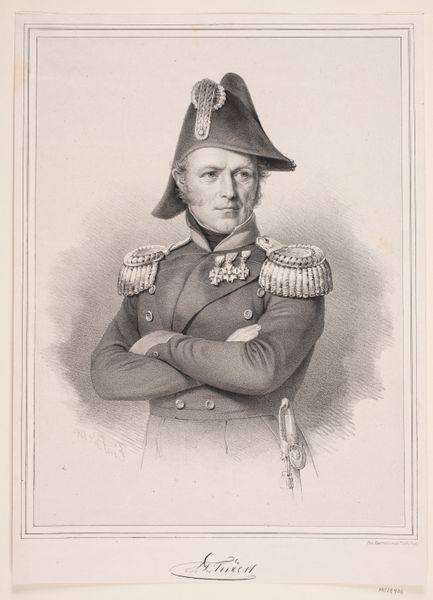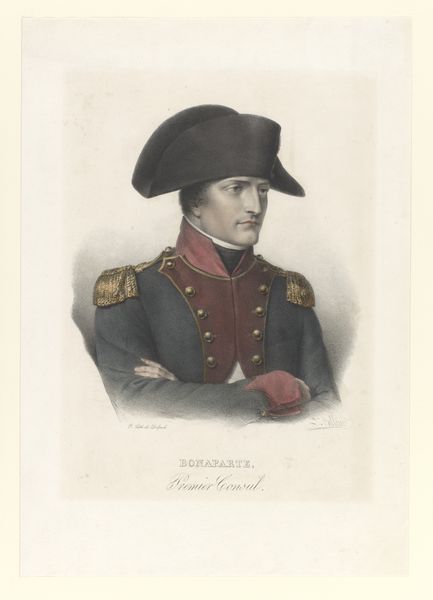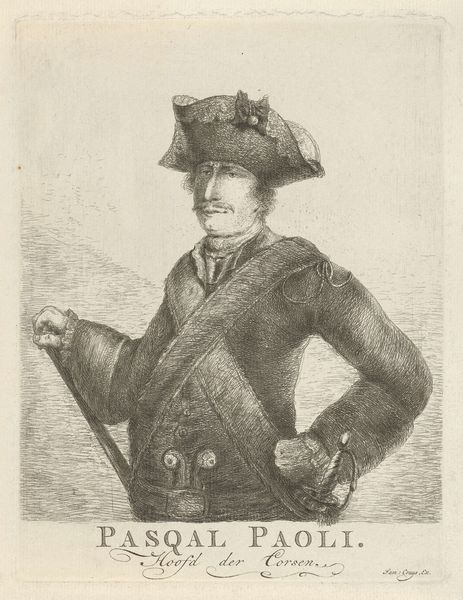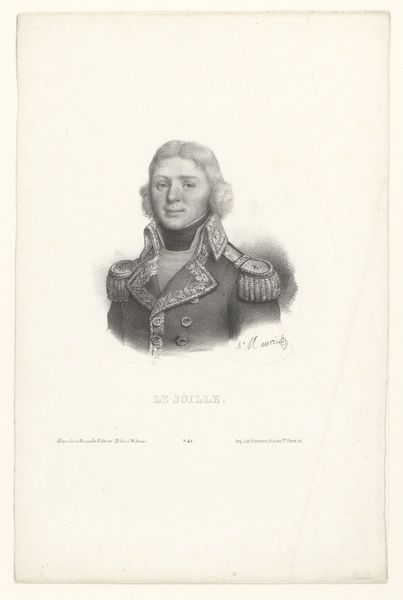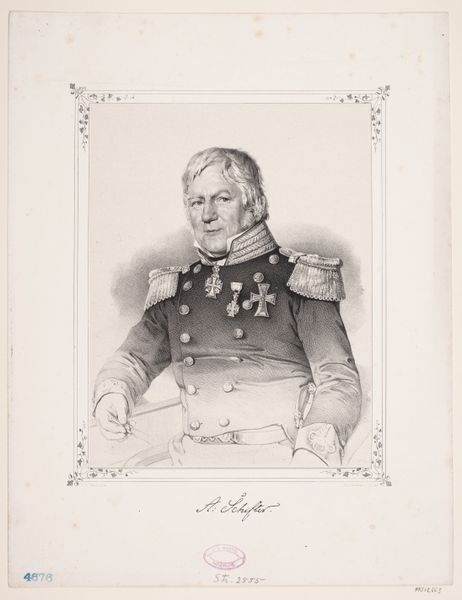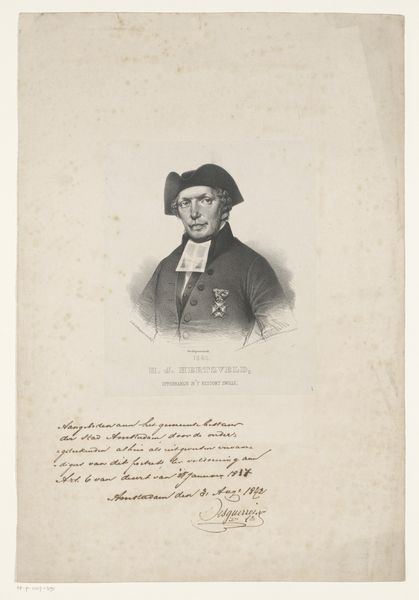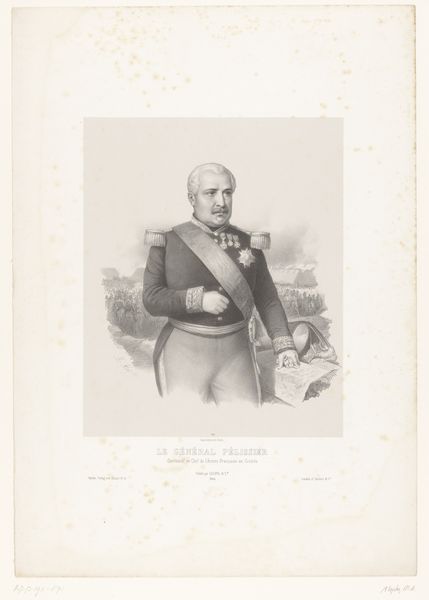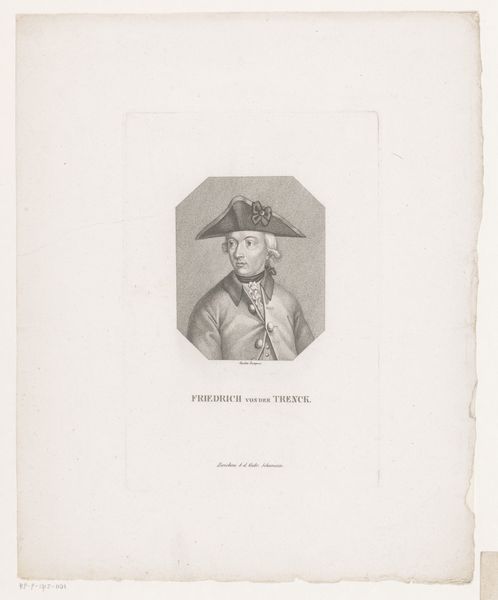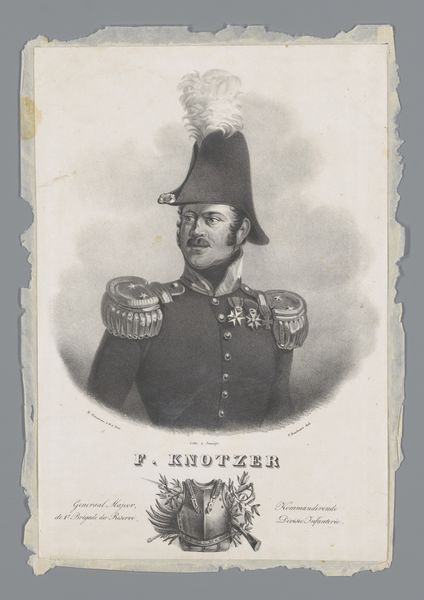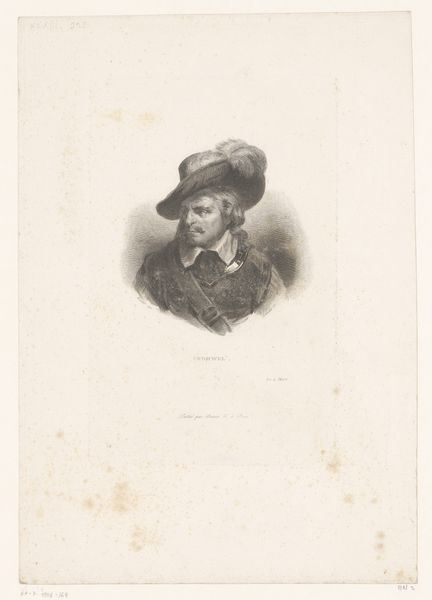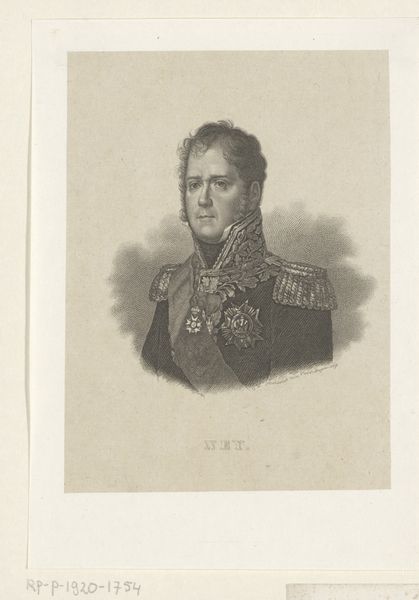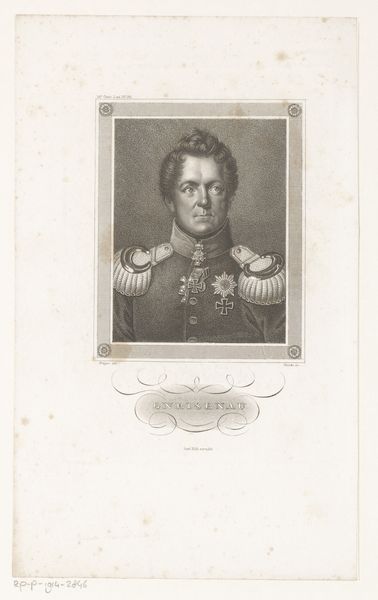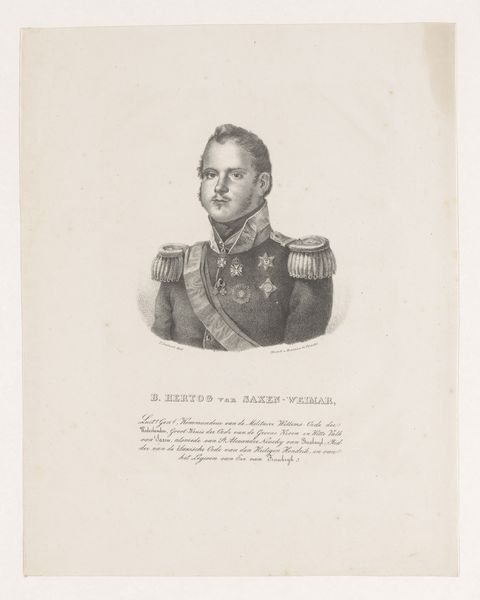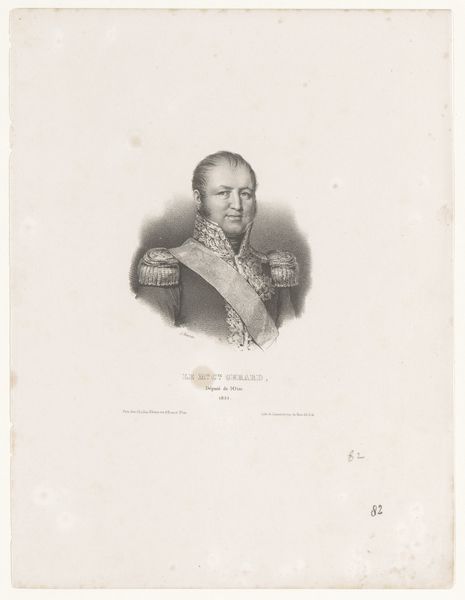
lithograph, print
#
portrait
#
lithograph
# print
#
portrait drawing
#
history-painting
#
academic-art
#
realism
Dimensions: 370 mm (height) x 292 mm (width) (bladmaal)
Emil Bærentzen created this lithograph portrait of Søren Ludvig Tuxen in 1837. Lithography is a printmaking process using a flat stone or metal plate, allowing for detailed and relatively quick reproduction. Look closely at the precision in capturing Tuxen's military uniform, the subtle gradations creating depth, and the overall sense of realism. This wasn't just about artistic skill; it was a commercial venture. Lithography democratized image production, making portraits accessible to a broader audience. Instead of commissioning an expensive painted portrait, individuals could obtain affordable likenesses. Bærentzen’s choice of lithography reflects the changing social and economic landscape of the 19th century, where art and industry were becoming increasingly intertwined, offering new opportunities for artists and patrons alike.
Comments
No comments
Be the first to comment and join the conversation on the ultimate creative platform.
